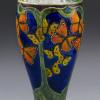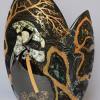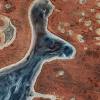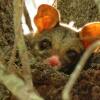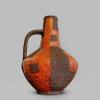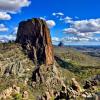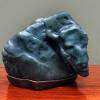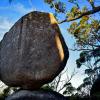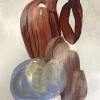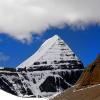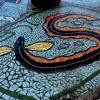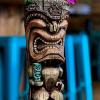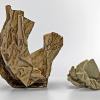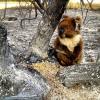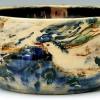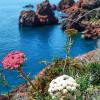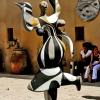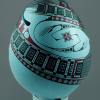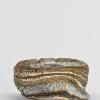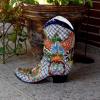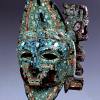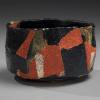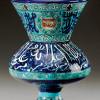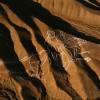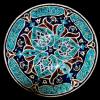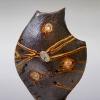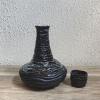
Lake Manasarovar
A high altitude freshwater lake fed by the Kailash Glaciers near Mount Kailash in Burang County. The Sutlej River, the Brahmaputra River (the Tsangpo), the Indus River, and the Karnali River all trace their sources to its nearby vicinity.

Carved mantra stones — Om Mani Padme Hum

Himalayan Meditation
Soul On A String (Tibetan movie)

North face of Mount Kailash

Trekking around Mount Kailash
Mount Kailash circumambulation
As an ancient site of pilgrimage, Mt. Kailash is a great mass of snow capped black rock soaring to over 23,000 feet with a rounded peak. The holy mountain of Kailash has the unique distinction of being one of the world’s most venerated destinations while at the same time being the least visited. The supremely sacred site of four religions and billions of people, Mt. Kailash is the most revered of places for Buddhists from around the world. To Hindus, Kailash is the abode of Shiva and nearby Mansarowar Lake, is the soul of Brahma. Tibetans refer to Mt Kailash as Kang Rimpoche (meaning “Precious Mountain”) while the followers of Bon-Po, the ancient pre-Buddhist shamanistic religion of Tibet, worship Kailash as the soul of Tibet. Even Guru Nanak, the first Guru of the Sikhs, is reputed to have visited this spot during his ‘Udasis’. The Jains worship it as Mt Ashtapada, the peak from which the religion’s founder, Rishabanatha, achieved spiritual liberation.

Bibhuti Pradhan photo

Manasarovar lake on horizon
Ngari Prefecture, Tibet Autonomous Region

Two Tibetan Mastiffs at Yamdrok Lake

Yamdrok Lake, Tibet

Tibetan lady porter with horse for hire

Tibetan women on a Kailash yatra
Walking around the mountain (clockwise for the Buddhists, counter-clockwise for Bon adherents) is known as a Kora,Yatra or Parikrama, and normally takes three days. However, Tibetans often complete this in a day taking around 14 hours. This 52.3 mile journey is easier for Tibetans due to their instrinsic acclimatation to high altitudes. The ambience is so charged in these locations that you can tap into extra reserves of energy. At the Drolma La Pass you will climb up to a heady 5,653 meters.

Auburn dog at Lamdrok Lake

Yak at the emerald Yamdrok Lake, Tibet

Balancing rock stupa

Zutul Puk monastery
Photo by distrunner

Lake Manasarovar with Mount Kailash in the distance
The four most sacred rivers of the Indian sub-continent begin from here – Sutlej (major tributary of the Indus River), Karnili (a major tributary of the Ganges), Brahmaputra and the Indus. The ancients regarded this holy region as the navel (center) of the universe,

Kailash Yatra pilgrims

The majestic Mt. Kailash from the Southside – 21,778 ft
Photo by Jia Zhou

Descending into the Drolma Pass

The jade green Gaurikund lake on the Drolma La Pass

Kailash Kora circuit entrance

Kailash namaskar, the first point on the Kora where the sacred peak becomes visible, hence the prayer flags

Kneeling veneration before the sacred Kailash

Carved prayer stones – Justin C

Kailash in the summer- Dirapuk Gompa

Kailasha darshan, continual prostrations around the mountain takes about a month.

Tibetan pilgrim mother and child

Tibetan Yak Teamster

Tibetan poet Saint Milarepa at Mount Kailash — carved nephrite jade

52.3 mile Kailash yatra

Rock face mural of Milarupa at Yolmo
Takphuk Senge Dzong, Helambu
In Tibetan lore, a monk named Milarepa once ventured far enough to reach the top of Mount Meru(Kailash) in the 11th century. When he returned, he forewarned everyone to avoid disturbing the God resting high up in the peak.

Kailash trail pilgrimage prostrations

Traversing the sweeping valleys

Beginning the parikrama of Mount Kailash

The Yatra of Mount Kailash can be done in one day, if young and fit

Pack Yaks on the path

Solo pilgrim nearing Mount Kailash

Imposing North face of Mount Kailash
Due to its religious significance, Kailash remains an unclimbed mountain. In 1926, Hugh Ruttledge studied the north face, which he estimated was 7300 feet high and “utterly unclimbable”

Statue of Shiva at Mount Kailash

Steady Yaks on the Kailash route

Descending group of pilgrims on a rocky path

Eastern perspective of Mount Kailash

Photo Marco Butturini

Kailash jubilation

Tibetan family trekking the circuit

Mount Kailash is also known in Tibetan as Gang Rinpoche

The Southern side of Kailash with the spine up the middle

An ancient rock stupa

Pooranmashi or full moon night at Mt Kailash has deep significance during “Shiv Bhoomi”

Kailash stupas

Mount Kailash western face

Saptarishi Cave inner Kailash circuit

Tibetan female guide with horse

The Sphinx like Mt. Kailash

Triumphant completion of yatra

Old Avalokiteshvara hand carved rupa altar

Nicholas Roerich — ‘Krishna Spring in Kulu’ – 1930
I first saw the spectacular scale and splendour of the Himalayas at Manali in the Kulu Valley in the mid-seventies on my way to the Rhotang Pass.

Himalayan vista

Buddha’s shoes

Sèvres Art Déco vase with mountain traveller

Floating Dakini art by Eva Schicker

Monastery at Lho on the Manaslu Circuit Trekking route

Luminokaya Buddha art

Venerable Milarepa

Ceiling of ‘Cave of Self arisen Sun and Moon’ A natural formation at the Nyida Rangjung meditation cave of Padmasambhava
Above village of Milamkhyim in Yolmo

The Nebra Sky Disk is the earliest known guide to the heavens yet discovered
1800 BC

Omnipresent Buddha at Espaco Restaurant, Brazil

A few miles to Lapchi

Tiger Cave Lion Fortress where Marpa instructed Milarepa to go and meditate
Helambu (Yolmo)

Vintage photo of Indian girl in Sari

Tibet Road in the Himalayas, photographed in 1867 by Samuel Bourne.

Ama Dablam mountain (the main peak – 6814m) – Tanya Sharapova
Sagarmatha national park, Nepal.

Sunset view from Helambu


